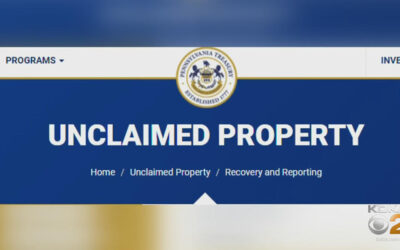A title search is a critical step in the real estate transaction process. Its primary purpose is to ensure that the property being purchased is free of any encumbrances, liens, or other claims that might affect the transfer of ownership. But what happens after a title search has been completed? Here’s an overview:
Review of the Title Report
Once the title search is done, the title company will produce a title report (or abstract of title). This report lists the ownership history of the property, any liens or encumbrances against it, and any other potential issues that might affect ownership.
Read More: Who Pays for Title Search Buyer or Seller? Clear Up the Confusion
Addressing Potential Issues
If any issues or ‘clouds’ on the title are identified, they must be addressed and resolved before the property can be transferred. Common title issues include:
- Unpaid Taxes: The current owner might have unpaid property taxes that need to be settled before the sale.
- Liens: If a previous owner had debts and those creditors put a lien on the property, this needs to be cleared.
- Disputes: There may be disputes over property boundaries, or perhaps there’s an undisclosed easement that allows someone else to use a portion of the property.
- Errors: Occasionally, clerical or filing errors can create issues with the title.
In most cases, the seller will need to resolve these issues before the sale can proceed. Sometimes, it could mean paying off a debt; other times, it might involve legal action.
Obtaining Title Insurance
Once potential issues have been addressed, the next step is usually for the buyer to purchase title insurance. Title insurance protects the buyer (and their lender) from any undiscovered claims or defects in the title that might arise after the purchase.
There are two types of title insurance policies:
- Lender’s Policy: This protects the lender’s interest in the property up to the amount of the mortgage. It’s typically required by mortgage lenders.
- Owner’s Policy: This protects the homeowner’s equity in the property. It’s optional but highly recommended.
Finalizing the Transaction
With a clear title and title insurance in place, the property transaction can move towards closing. At closing, all the financial aspects of the sale are finalized, the property is legally transferred to the buyer, and the buyer receives the deed to the property.
Recording the New Deed
After the closing, the new deed, which shows the transfer of ownership from the seller to the buyer, will be recorded in the local land records office. This public recording ensures that there’s a formal record of the transaction and the new ownership.
Post-Closing Monitoring
Some title companies offer post-closing monitoring services. This means they’ll monitor the title of the property even after the sale to ensure no new encumbrances or liens are placed on the property without the owner’s knowledge.
Conclusion
The steps that occur after a title search ensure that property transactions are conducted transparently, and the rights of all parties involved are protected. Whether you’re a buyer or a seller, understanding these steps can help make the transaction process smoother and more predictable.
FAQs (Frequently Asked Questions)
Q: What is a title search?
A: A title search is a comprehensive examination of public records to determine a property’s ownership and identify any potential claims or issues.
Q: How does title insurance protect property owners?
A: Title insurance provides financial coverage against potential title defects or claims that might arise in the future, safeguarding property ownership rights.
Q: How long does a title search take?
A: The duration varies, but on average, it can take from a few days to a few weeks, depending on the property’s history and the search’s complexity.
Q: What happens if issues are found during a title search?
A: If potential problems are discovered, they need to be addressed and resolved before the transaction can proceed.
Mehedi Miraz is the passionate writer behind RealEstateTracer.com. With a love for writing and a fascination for the world of property, Mehedi has honed his expertise through years of dedicated research. His words breathe life into every aspect of the industry, making complex topics simple and enjoyable to explore. Armed with valuable insights, Mehedi is on a mission to share knowledge, empowering readers to navigate the real estate landscape with confidence.






